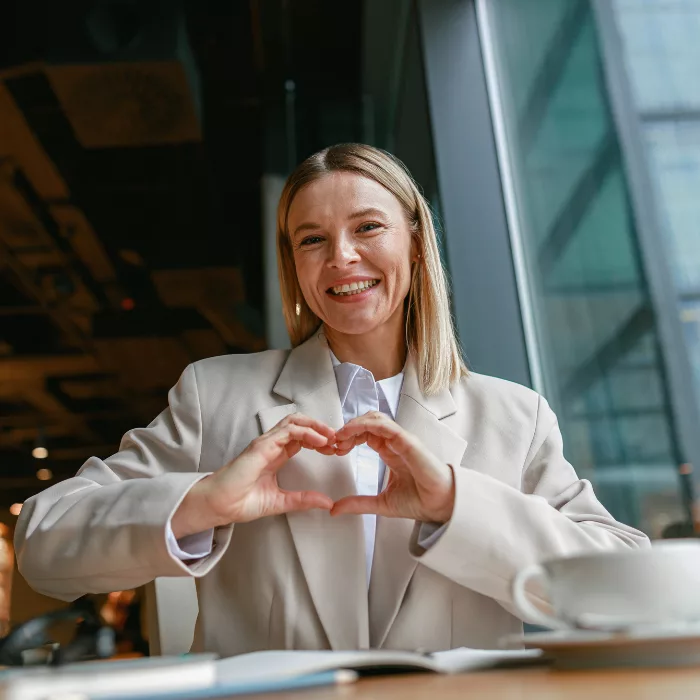
How does Cortisol impact intimacy
Welcome to the world of hormonal harmony, where Dr. Anna Cabeca, a renowned OBGYN, bestselling author, and triple-board certified expert, invites you on a journey of empowerment and enlightenment. With her extensive knowledge and infectious personality, Dr. Anna delves into the intricacies of hormonal fluctuations, revealing the secrets behind intimacy, vitality, and self-fulfillment.
What inspired you to delve into the world of hormone balance and integrative medicine?
At the age of 39, I experienced the traumatic loss of my baby boy (who was 18 months old at the time). I spiraled into a deep depression and a full body post-traumatic stress experience. Overnight, I stopped menstruating. I was told by my doctor that my body had gone into irreversible infertility mode, trauma induced menopause, and that I would never be able to have children again. Now, it is indeed so, that extreme stress can cause a radical hormone shift in your body that can interrupt your cycle from one day to another, or turn your hair gray overnight – these things do happen, but something within me couldn’t accept that. The loss of a child was devastating enough, and I couldn’t accept I lost my fertility as well. In hindsight, I admit, what I did next was a bit radical, but I had to do something. So, I packed up, and took my girls on a sabbatical healing journey around the world. I met an American Shaman, Indian Philosopher, Indonesian Healer and some of the world leading scientists in Europe, Middle East, South America, Australia and New Zealand. The learnings of the different ancient indigenous healing methods combined with modern medicine led me to reverse my early onset of menopause, and I naturally conceived a child and gave birth to a healthy baby girl at the age of 41. That experience totally changed not only my life, but my perspective on medicine, and how to delve deeper into hormone balancing through integrative medicine treatments. You can’t address any kind of ailment in a silo – you have to approach it from body-mind and soul perspective, and you have to integrate natural, organic plant medicine with the science of today. Those ancient treatments have helped us heal throughout centuries, those healing methods didn’t just disappear or become obsolete because science progressed, quite the contrary – the different modalities augment each other – it is ALL connected.
Can you share a pivotal moment or experience that shaped your approach to women’s health and wellness?
I think my pivotal moment happened in two phases. Many years before my personal traumatic experience (which was definitely THE turning point for me), back in 1997, when I was a resident at Emory Hospital in GA, my mom, who was 67 years old at the time, underwent a heart surgery, and never made it out alive. She had suffered from diabetes and had several other health issues for years, which really was what inspired me to become a doctor to begin with. I remember when I was a teenager (and even younger) when Mom would seek treatment, most of the physicians who cared for her were men, and most of the research they had done to base her treatment on, had been done on men – and that never sat right with me. I always felt the women’s voice, perspective and physiology needed to be an active participant in the medical force and treatment options. And I am not talking about the sex organ, I am talking about hormonal composition, emotional makeup, and overall ability to function – we are just different. And I would add that as I get older and more experienced in my field, I wouldn’t even differentiate based on gender anymore, we are all individuals with our own unique way of processing life (physically and emotionally), and every fiber of our being responds in an individual manner, the way we are wired. Hormones are our body messengers so to speak, they transport information from one part of our body to another and are key to our body’s ability to function – so figuring out our individual hormonal balancing act seems like the most natural approach to medicine to me. But yes, that pivotal moment came to me through Mom first, and then through my own experience years later.
What distinguishes you as The Girlfriend Doctor, and how does your unique persona influence your work?
What you see is what you get with me, I have a great sense of humor, (especially important around women’s sexual health before, during and after menopause) good intuition and am a woman of faith! I connect with my patients, and I speak from experience and share my personal experience as a point of reference, so people can identify with me as a human being, and not some lady in a white coat and several degrees on her wall pronouncing scientific words we can barely speak and don’t know the meaning of. I actually love to teach and empower my patients to understand what they are going through, the educational approach to my care is a definite trademark. I am not intimidating, I am relatable and approachable, and that is the only way I know how to do my job. Practicing medicine is what I do, but what I am is a human being- and that’s how the Girlfriend Doctor’s nickname came about – I’m like a friend who just happens to be a doctor.

How do your bestselling books, “The Hormone Fix” and “Keto-Green 16”, offer practical solutions for women navigating hormonal changes?
I consider my book – The Hormone Fix© – the foundation that every Woman should read. Truthfully, men should read it too, to better understand women and the hormone changes we are going through as we age. In it, I approach our health as there are many spokes on a wheel, there are many aspects to optimizing physical health – physical, emotional, genetics, culture and age related. We have to address the areas that pertain to keeping us going forward in our life as smoothly as possible. In both books, we address the mental health, physical health, emotional health, and the stress/oxytocin connection, as well as hormone disruptors and toxins that can affect us.
Keto Green16© – offers a 16 day keto green meal plan that includes my medicinal menus to help balance hormones, decrease inflammation and improve natural detoxification. Client’s feedback has been that they feel amazing. This is a really good plan to implement to help support weight loss, brain health, reducing perimenopausal and menopausal symptoms and increasing insulin sensitivity. It also helps you understand the brain hormone and insulin connection.
My third book -MenuPause© – offers six different weekly menu plans that each pause something different in your system in order to help break through plateaus and fine-tune our nutritional support.
What role does Oxytocin play in intimate relationships, and how can understanding its effects enhance romantic connections?
Oxytocin is the most powerful hormone in our body. I consider it like the queen of all hormones, it is the most alkalizing hormone of all. Oxytocin is the hormone that really cements connections and intimate relationships, it is the binding hormone and often referred to as the love hormone. It is produced with orgasm, intimacy, hugging, kissing, with play and laughter, even playing with a pet, doing things you enjoy, like watching a movie that makes you laugh.
Higher levels of oxytocin in women encourages intimacy and increases the desire and need to connect with our partner, especially after sex. In men more specifically, oxytocin makes them sleepy, and after a surge of oxytocin levels in their bodies (which comes after they orgasmed), men feel relaxed and want to roll over and go to sleep.
So we have to train our male partner to share at least a few minutes of intimate (post sex) connection time, before they can doze off and recharge. And that makes for a win-win experience – high levels of happy hormones, some connection for the women, some rest and recharge for men…everyone feels heard and has their needs met – which helps us feel safe and increases the romantic feeling. I explain this more in depth in my program called sexual CPR and explain the physiological aspects of intimacy, relationships and the role that hormones play, and the many aspects that can affect our desire and libido.
Conversely, how does Cortisol impact intimacy, and what strategies can individuals employ to manage its effects?
Cortisol (the stress hormone) and oxytocin(the love hormone) are basically at war with each other. When cortisol goes up, oxytocin goes down, which makes sense. When you’re stressed and you’re in a fight or flight mode you don’t particularly feel like hugging and loving, and certainly not if you’re in disagreement with your partner. – no romance there at that time!
In general, when you are stressed, you’re not feeling that desire to connect, you’re in survival mode. Cortisol is the most acidifying hormone in our body, it works as a catabolic hormone, it will break us down to keep our body in homeostasis. It’s an anti-inflammatory – lifesaving hormone, however when it’s up for too long, that’s when we get into real trouble. When cortisol is up too long, we get into this dangerous physiologic state where cortisol and oxytocin are both low, and it transpires in as a feeling of disconnect, lack of interest, It feels like: ”I know I love my partner, but I don’t feel love for them. I know I love my job, but I am not enjoying it. I used to love going into the office. I don’t want to anymore…”. You find yourself isolating, more depressed, and that’s often a physiological phenomenon we refer to as burnout. My book – The Hormone Fix – is a great resource for this, as well as my online program, magic menopause and Sexual CPR.
Could you elaborate on your natural products like Julva® cream and MightyMaca® Plus? How do they support hormone balance and overall well-being?
Mighty Maca Plus™ is the first foundational product that I created in 2006, following my journey around the world. It’s a supplement I recommend you use daily, that contains organic Peruvian Maca and 30 plus other superfoods, such as turmeric, green tea, resveratrol and more. Ancient wisdom and medicine rely on the healing powers of all these ingredients, and are used in many countries as remedies.
The legend says that ancient Indian warriors in Peru would drink Maca before they went into battle to give them stamina and energy. And it is also used to treat infertility and increase libido – when I was there, they encouraged me to drink Maca -they would wink at my husband at the time and say, it’s the Peruvian Viagra. So we started drinking some maca and I felt the shift within me. This led me to deepen my research into the various health benefits of Maca and other plants and herbs and it led me to develop the synergistic formula Mighty Maca . It works as an adaptogenic, and has been used to help decrease hot flashes, improve detoxification, improve alkalinity and support energy without a caffeinated effect. We see an improvement in DHEA levels progesterone levels in those consuming it daily.
Julva ™, the second product I developed, is made with DHEA and plant stem cells from the alpine rose and emollient to make the cream nurturing to the vulvar and vaginal areas. I always recommend using Julva from the clitoris to anus to keep the tissue in that area healthy. It does age like the rest of our skin, our perineum will wrinkle as we age, and the ability to keep that area as healthy as possible makes all the difference to a woman’s quality of life. Beyond improving vaginal dryness, it increases the sensations down there and the ability to orgasm, which in terms makes sex a much more pleasant experience. But Julva also supports bladder health, helps decrease urinary tract infections, and minimizes issues with incontinence.
The clitoris is a primary area of orgasm sensitivity, and with orgasm, we increase our levels of oxytocin, so the more pleasure we can experience, the happier we are. And it is truly an amazing product. You can read the testimonials online, Julva never fails!
In what ways do you blend humor and science to engage audiences during your lectures and presentations?
I love to use humor in science. All the physiological changes we go through can be scary and disconcerting, occasionally embarrassing too, especially when we don’t understand. So by making fun of some of the symptoms, I feel it helps normalize them, and makes it more comfortable to talk about. I always make a point that if something hurts all the time, why do we wanna do it? If sex hurts, then of course why would you want to do it? And in an attempt to bridge the gender gap, I make a sports analogy. If you play baseball and keep getting hit in the head, why would you want to do it? Guys usually nod their heads when I say that.
I like to use humor to improve my connection with the audience to make them feel safe and to take the weight off when addressing difficult and often heavy subjects. I would say that my humor and lightweight approach is part of why I got nicknamed the girlfriend doctor, this is humanity people – the good the bad the ugly… but we are all in it and go through it. Yes I am a doctor, but I am going through the changes just like you do! So, we can laugh and support each other and accept that such is life, or we can be nervous and judgmental or ashamed…and that doesn’t serve any purpose, and in the end helps no-one.
As a triple-board certified physician, how do you incorporate both traditional and integrative approaches into your practice?
I truly can’t separate them, as I said earlier, I think all different approaches to healing augment each other. I do not discriminate against healing practices that work. Who am I to say that one approach is better than the other? Medicine is a constantly evolving practice, it is not a perfect science. And yes there is a lot of proven data supporting treatment plans we opt for, but the same can be said about ancient healing modalities or holistic approaches. I think health is a very individual experience and what works for one person, doesn’t always work for the other (data or no data). That is why I take a very integrative approach in my clinical practice. It is crucial for the individual to be an active participant in their treatment plan, know who you are, what you are comfortable with, and work together with your physician. You are responsible for your own health, and you need to be engaged, and willing to get better. There is no miracle pill or miracle worker- and everything takes a team effort, and the patient is very much part of the team, I’d say he is the most important one!
Finally, how do you balance your professional endeavors with your personal life, living in Dallas with your daughters, horses, and dogs?
Well I am turning 58 this year; hauling horses and driving a big old truck is not necessarily where I had envisioned my life to take me, but I adapt, I adjust and I am in acceptance, and truth be told, I am thrilled I’m able to do it. I moved to Texas during the pandemic, I homeschooled my daughter at the time and was trying to give her something to hold onto. She loves horses and turns out she loves rodeo, and is hoping to make a career of it. So, I am here to support her. It helps that I actually love living here too lol. It’s just been a life filled with challenges and joy and I find myself constantly leveling up. My personal life and professional life is very much integrated. My daughters have all worked with me at some point, and my professional team is very much like an extended family to me. But I will say, and more so in recent years, that I make taking time off a priority. I work hard, but I know how to play hard too. And when I take a break, I take that break, recharge, travel, and enjoy my time with my daughters and grand-daughter.
APPLY TODAY
100 Top Global Women Entrepreneurs – Global Woman Magazine
Our Journey in 12 Months:
Our Journey in 12 Months – Global Woman Magazine
5 Things That Show Money is Not Evil:
5 Things to Show That Money Is Not Evil – Global Woman Magazine
Global Man Magazine Page:
Global Woman, Global Man: Socials:
Global Woman Magazine (@global_woman.magazine) • Instagram photos and videos





